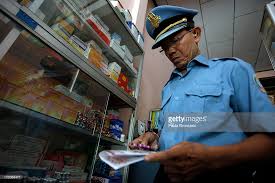As per section 42, the drug distribution is done by only registered pharmacists. Section 26A of the Pharmacy Act empowers the state pharmacy councils with the sanction from the state governments to appoint pharmacy inspectors having prescribed qualifications. The Act also authorizes the inspectors to inspect premises where drugs are dispensed, to enquire whether persons engaged in dispensing are qualified and to act against any violation of the Act.
So far Kerala state pharmacy council and Maharashtra state pharmacy council have appointed pharmacy inspectors. Pharmacy inspectors have been appointed in all the districts of Kerala. While there were just two pharmacy inspectors appointed in Maharashtra.
It is learnt that the Chhattisgarh state pharmacy council is taking up the pharmacy inspectors' appointment issue with the state government. Karnataka Pharmacy Council (KPC) is now working to appoint pharmacy inspectors in all the 30 districts of the state. Pharmacy Council of India (PCI) has time and again taken up the matter with all state governments and Union territories for appointment of inspectors. It has appealed to Union Health Ministry to take up the matter with the state governments and Union territories to allocate funds for appointment of inspectors.
Considering the rise in medication errors leading to adverse drug reactions and antibiotic resistance caused by misuse/overuse of drugs, it is crucial to ensure presence of pharmacists in medical stores so that public can access to safe drugs. However state drug inspectors conduct searches to make sure that pharmacists are available in drug stores but its the pharmacy inspectors who ensure that drug dispensing is done by pharmacists. The delay in appointment of pharmacy inspectors can have serious implications for patient safety, said RS Thakur, president of Federation of Indian Pharmacists Organisations (FIPO).
Thakur pointed out a slew of reasons responsible for delay in appointment of pharmacy inspectors. One of them is indifferent attitude of state governments towards state pharmacy councils' proposal to appoint pharmacy inspectors. The governments have not felt the need for pharmacy inspectors as it is argued that it will create confusion and conflict of interest between drug inspectors and pharmacy inspectors if it takes place.
The state pharmacy councils are constituted by the state governments under section 20 of the Act. They are bound to function under an elected body. In the absence of regular elections in certain states-- West Bengal, Punjab, Uttarakhand, Madhya Pradesh and Odisha, authority of the state pharmacy councils is concentrated in few hands which has taken the appointment of pharmacy inspectors a backseat, he added.
FIPO has repeatedly written to state governments and state health ministries to take steps to ensure that pharmacy council elections are held and appointment of pharmacy inspectors is made at the earliest, he concluded.
